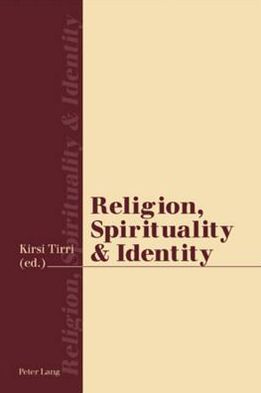

 |

|

The average rating for Religion, Spirituality And Identity based on 2 reviews is 3 stars.
Review # 1 was written on 2016-06-13 00:00:00 Lisa Hansen Lisa HansenA Post-Secular Augustinian Religion of affections: Caputo re-envisions religion as a religion without religion, a religion with a lot of "how" and not so much "what," a religion in which we continually ask ourselves, What do I love when I love my God?, and are inevitably thrown around by our undecidability, our lack of certainty, about how to answer that question. Caputo's project is positioned against Fundamentalism which insists on epistemic presence, on the "what" of religion, thinking it has all of the answers, convinced it Knows God, certain it is speaking for God, on behalf of God, with the authority of God. Caputo, instead, opts for a much less self-assured understanding of religion, God, and the love of God. He begins with the assessment that nobody REALLY knows who they're praying to, who they believe in, who God is, if God is even there, what we are, where we're going. We don't have that kind of certainty (do you see the post-foundationalist epistemology here?). We're inside the flux, and all things flow (Heraclitus). But, this is okay, Caputo thinks, because a post-secular religion is more concerned with "how" we live and believe than what we live and believe. True religion is not about assimilating propositions about (the object) "God" into a systematic treatise (a project which over-emphasizes the "what") but about "how" we love God. And what is God? "God is love." Perhaps, "love is God." Caputo loves the substitutability of these two statements, how they seamlessly flow into one another. "Anyone who loves is a child of God and knows God" (1 John 4:7). What is God? What is love? Is God love? Is love God? Oh, the theologians are in an uproar! The metaphysicians are left scratching their heads (maybe even sharpening their weapons) over the travesty of Caputo's project! Caputo insists, however, that we keep this tension open, that we let the tension remain, bouncing us around, continually uncertain about whether God is love or love is God. When we pray to God for justice, are we praying for justice for God? Do we really know? Like REALLY, REALLY know? Some say, yes, we know. Caputo says, no, we don't. Thus spoke Zarathustra. It is in this undecidability that true religion comes. Think about it... What if we really don't *Know* (for certain) everything that we think we know about God. What does that do to us? What if we remove certainty from the equation? What if we remain in the tension of believing, but praying that thou help us in our unbelief? Oh, the tension! The madness of it all! Perhaps this is truly faith, continually to hope, to pray, to pray like hell, for God to come, for the impossible, for that which lies outside of our epistemic rights, for justice to cover us all like the waters cover the earth, without certainty that it will happen, without assurance? What we're left with are prayers and tears, our hopes and fears. What if we remove the certainty of divine reward? What if we're not sure that God will reward us for helping people? Will we still help people? Does our lack of certainty necessitate that we stop loving if we're not promised a perfect result? Is this the end of faith? Or is this where faith begins, where we continue to love even when we don't know what will happen? As Detective Rust Cohle said in the show True Detective: "If the only thing keeping a person decent, is the expectation of divine reward, then, brother, that person is a piece of shit." Love without certainty, love that abounds without reserve, without pretense, without certainty, without confidence, love that wants to love for love's sake, for God's sake, for the sake of the other, is true love. Caputo's heavily apophatic (negative) theology leaves God deflecting our metaphysical, propositional arrows and reflecting them to the face of the other, the neighbor, the stranger, orphan, and widow, those all around us who we CAN SEE. When did we see you naked, Lord, and clothe you? When did we see you hungry, Lord, and feed you? |
Review # 2 was written on 2013-09-30 00:00:00 Sandra Shaver Sandra ShaverJohn Caputo absolutely blew my mind with this little book. I read What Would Jesus Deconstruct? a few months ago and really liked it, but it had me a little lost at some points because I was unfamiliar with his general philosophical stance. In contrast, On Religion is clear, short, and a kind of treatise on theology. As a result, it's the ideal intro to Caputo's form of radical theology. To be honest, I think this should be required reading for everyone, especially students of religion or philosophy - it's that good. On Religion is an honest, challenging, and liberating book that transcends the usual bounds of theology, and ultimately leaves the reader at the crossroad of choosing either a path of radical love or selfish indifference toward the world & those in our lives, irrespective of one's theological stance. |
CAN'T FIND WHAT YOU'RE LOOKING FOR? CLICK HERE!!!